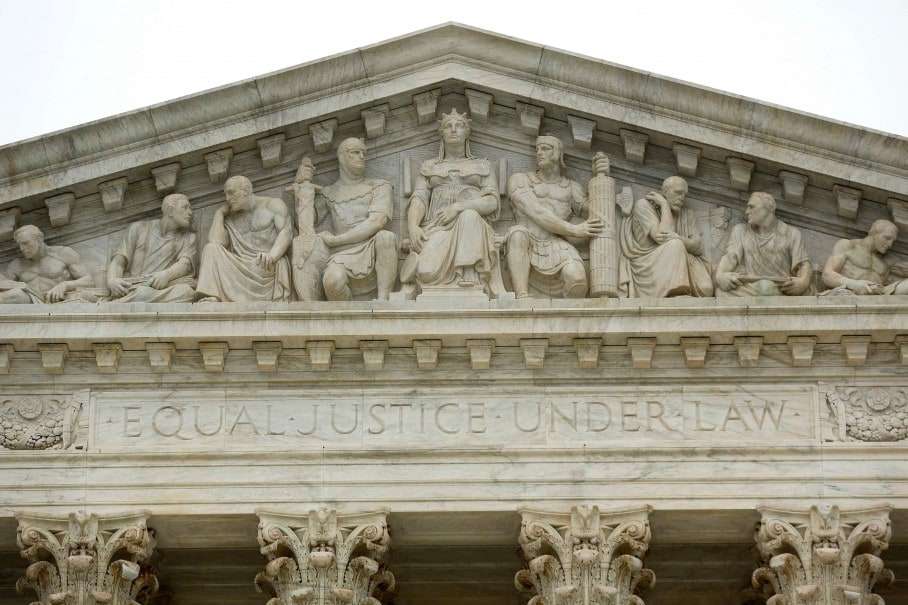The Volokh Conspiracy
Mostly law professors | Sometimes contrarian | Often libertarian | Always independent
Could King v. Burwell spell bad news for the EPA?

King v. Burwell was a tremendous victory for the Obama Administration. Although the Court refused to defer to the Internal Revenue Service's interpretation of the PPACA, the Court nonetheless agreed with the Administration that the law must allow for tax credits in states with federally established health insurance exchanges. As readers know, I was quite involved with this debate and I offered some preliminary thoughts on the decision here.
While King will certainly make it easier for the Obama Administration to implement the PPACA, a key aspect of the Chief Justice's decision could make things more complicated for the Environmental Protection Agency. In ruling for the Administration, the Court did not rely upon federalism principles, as some had urged. In that sense, the EPA may have doged a bullet. Yet the Court's treatment of the Chevron doctrine - in particular its conclusion that no deference was owed to the IRS on the question of whether the PPACA authorizes tax credits in federal exchanges - could make EPA sweat. Among other things, this aspect of the decision undermines one of the arguments the EPA would like to make in support of its controversial "Clean Power Plan," which seeks to regulate greenhouse gas emissions from existing stationary sources under the Clean Air Act.
Under the Chevron doctrine, courts are to apply a two-step analysis when interpreting statutes in the context of agency action. First, the court looks at the text of the statute. If the text is clear, the plain meaning of the statute applies, and we're done. If the statute is ambiguous about the precise question at issue in a case, however, the court consults the interpretation offered by the agency. At this second step, courts are to defer to the interpretation of the implementing agency provided that it is reasonable. This is not a demanding requirement, and agencies rarely lose at step two.
There are some exceptions to the Chevron doctrine, however, and the Chief Justice took advantage of one in his King opinion. Chevron deference rests on a presumption of delegation. The idea is that deference to agencies is appropriate because courts may presume that Congress sought to delegate authority to resolve the ambiguity to the implementing agency. Where there are reasons to believe that Congress did not delegate interpretive authority to an agency, however, Chevron does not apply. This may be the case where Congress did not delegate rulemaking authority to the agency or, as the Chief Justice explained in King, where the underlying question is particularly significant or lies outside of the federal agency's expertise. In such "extraordinary cases," Roberts wrote, no deference is due, even if the relevant statutory provisions are ambiguous. So, even though the Court found the relevant PPACA provisions to be ambiguous, the Court did not defer to the IRS because the issue - whether tax credits would be available in thirty-plus states - was "a question of deep 'economic and political significance'" and the IRS "has no expertise in crafting health insurance policy of this sort." Therefore, the King majority took it upon itself to resolve the statutory ambiguity.
As other commentators have noted (including Chris Walker, Jody Freeman, and Cass Sunstein), this aspect of the King decision offers opponents of agency action a new arrow for their legal quivers. When confronted with particularly ambitious agency undertakings, those challenging agency interpretations can argue that the question at issue should not be left to the agency, and this argument will be stronger the more that is at stake.
When the EPA's forthcoming Clean Power Plan is challenged in court (as it will - indeed it already has been), one of the key legal questions will be whether the EPA has any authority at all to regulate greenhouse gas emissions from power plants under Section 111 of the Clean Air Act. The reason for this question is that when Congress last amended the CAA in 1990, it enacted two separate revisions to the relevant statutory language. The EPA cites one of these revisions in support of its regulatory authority, while CPP opponents cite the other. The EPA would like to claim that this conflict in statutory language creates an ambiguity, and that courts should defer to its interpretation under Chevron step two. But after King, this argument will be harder to make.
Opponents of the EPA's CPP will argue that this is not a typical statutory ambiguity, as the question is not what a given statutory provision means, but which statutory provision(s) actually became law. Put another way, the question is not about how to interpret Section 111, but what Section 111 actually says. And just as the IRS has no particular health policy expertise, EPA's opponents will argue that the EPA has no particular expertise in legislative procedure. It's one thing to defer to the EPA over technical matters concerning pollution control, but quite another to defer to the EPA on legislative process, particularly where (as with the CPP) the outcome of the dispute will have "deep 'economic and political' significance." This is an argument made by Harvard law professor Laurence Tribe made earlier this year, and it is an argument that has been made much stronger by King. So while folks at HHS and the IRS may be cheering King, this decision also gave folks at the EPA something more to worry about.


Show Comments (0)